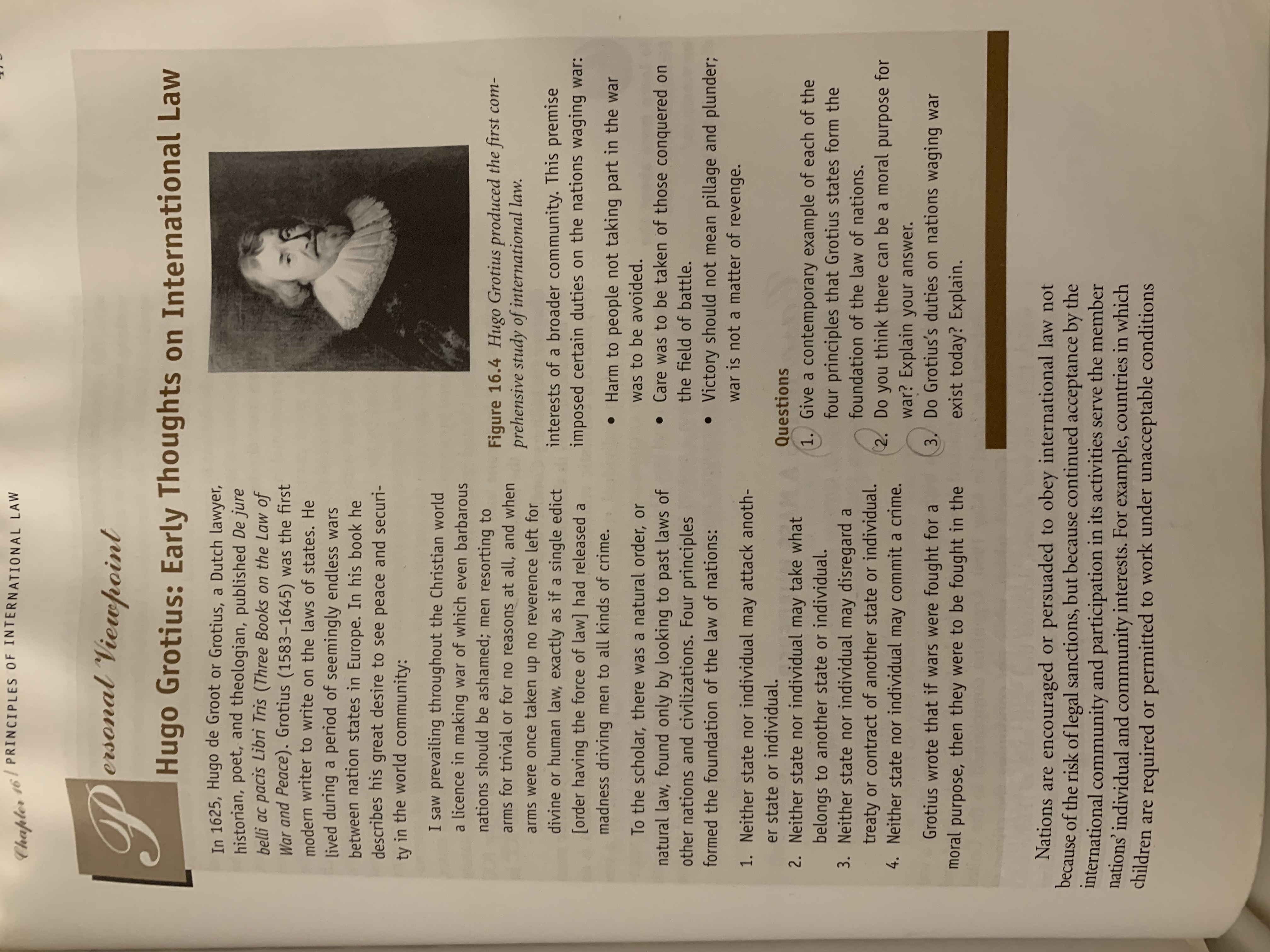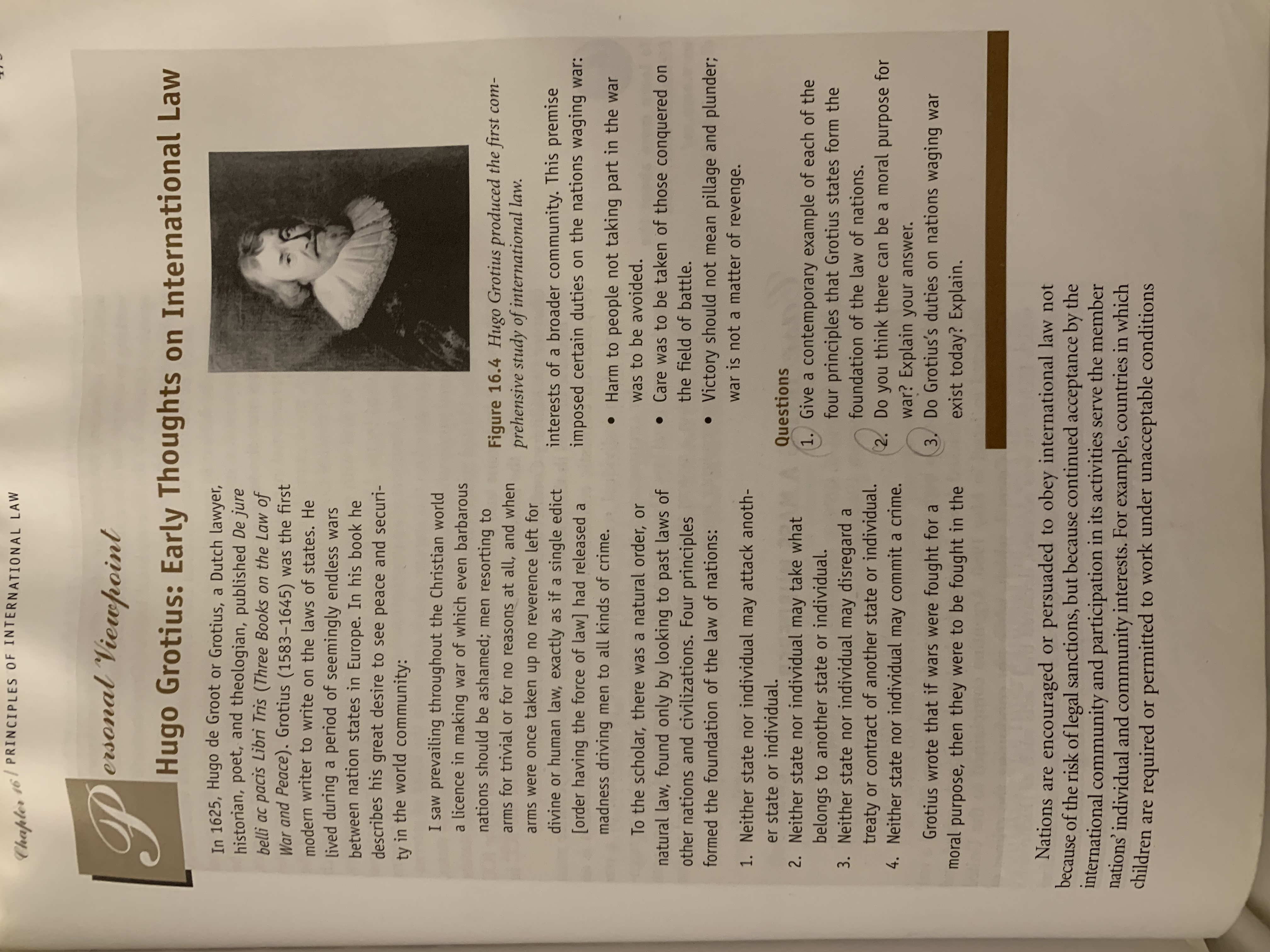Answered step by step
Verified Expert Solution
Question
1 Approved Answer
Read the article Hugo Grotius: Early Thoughts on International Law on page 475 in your textbook. After reading article make a response about this statement

- Read the article "Hugo Grotius: Early Thoughts on International Law" on page 475 in your textbook.
- After reading article make a response about this statement: Do you think there can be a moral purpose for war?
REFERENCE:

Step by Step Solution
There are 3 Steps involved in it
Step: 1

Get Instant Access to Expert-Tailored Solutions
See step-by-step solutions with expert insights and AI powered tools for academic success
Step: 2

Step: 3

Ace Your Homework with AI
Get the answers you need in no time with our AI-driven, step-by-step assistance
Get Started


